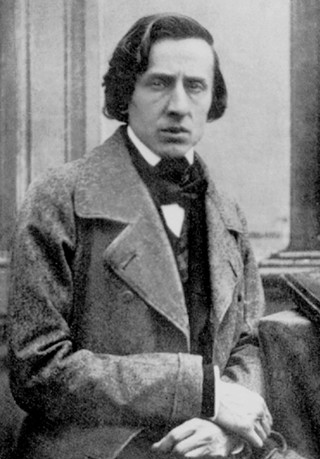
Chopin Etudes (and Godowsky!)
You might be thinking, "Why on earth would anyone want to devote an entire podcast to etudes?" For most instrumentalists, etudes are the bane of our existence. They are studies, meant to develop technique on an instrument. Etudes are an essential part of any instrumentalists work, but they had never been known for their musical content. As a violinist, I had practiced dozens of etudes by Kreutzer, Rodé, Dancla, Sevcik, Schraideck, Kayser, Mazas, and more, lamenting the day I chose the violin as my instrument. But pianists have the same dreaded names, like Czerny for example. Chopin changed all of that. Chopin was the first composer to integrate musical content into his etudes, which meant that Chopin's etudes were both extremely difficult technical exercises, but they also were musically interesting enough to be performed live. LIke everything Chopin did on the piano, this was revolutionary, and Chopin's 27 etudes have been part of the piano repertoire ever since. We'll discuss some of these etudes today, along with the nature of virtuosity itself. We'll also spend a lot of time talking about Leopold Godowsky. Leopold Godowsky is not a name you've probably heard very often. But he was one of the great pianists of the end of the 19th century and the beginning of the 20th century, with legions of admirers including legendary pianists like Josef Hoffman, Arthur Rubinstein, Sergei Rachmaninoff, Claudio Arrau, and the composer Ferrucio Busoni. Godowsky's pianistic gifts were well known, but what about his compositional ones? Well, to speak of one is to speak of the other. During the 1890s, when Godowsky was in his late 20s, he began making arrangements of famous piano works of Chopin and other composers music. Over the next 20 years, he became engrossed with Chopin's legendary etudes, or studies, and began writing his own arrangements of them. Now Chopin's etudes are extremely difficult just on their own, but Godowsky's studies are on another level of difficulty. In fact, Godowsky's transcriptions are so difficult that many pianists don't even dare to play them, though some, like the great Marc-Andre Hamelin, have made them an integral part of their repertoire. So today on the show, we'll take a look at some of the studies on Chopin's etudes, analyzing both the original Chopin etudes and then the changes that Godowsky makes to them. This will be a show as much about Chopin as it is about Godowsky, because you can't understand Godowsky's achievement without understanding the Chopin first. Join us!
15 Joulu 202258min
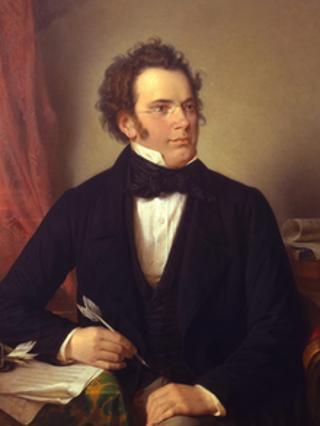
Schubert Cello Quintet
In the late summer or early autumn of 1828, Schubert completed an extraordinary work, his String Quintet in C Major. 6 weeks later, he was dead. Nowadays this piece is considered to be one of the most sublime 50 minutes to an hour that exists in all of music. But when Schubert completed this quintet, he sent a letter to the publisher Heinrich Albert Probst, to ask him to publish it. Schubert wrote: 'Among other things, I have composed three sonatas for piano solo, which I should like to dedicate to Hummel. I have also set several poems by Heine of Hamburg, which went down extraordinarily well here, and finally have completed a Quintet for 2 violins, 1 viola and 2 violoncellos. I have played the sonatas in several places, to much applause, but the Quintet will only be tried out in the coming days. If any of these compositions are perhaps suitable for you, let me know.' The quintet was ignored by Probst, and we don't know if Schubert ever heard that rehearsal of his quintet. When Schubert died, it was utterly forgotten until 1850, over 20 years after Schubert had put these notes down on paper. The well known at the time Hellmesberger quartet discovered the quintet, began performing it, and finally, in 1853, the piece was published for the very first time. Slowly, as so many great works of art do, it caught on, until today it is one of the most beloved works in the entire Western Classical music universe. But it's not an easy piece to talk, or to write, about. Long associated with Schubert's impending death, though we have no evidence that he knew he was dying when he wrote the piece, it is often seen as a work full of shadows and shades, despite its C Major key and often ebullient character. Writers, thinkers, and podcasters I should add, have often found it difficult to put their finger on the fundamental character of this remarkable piece, which I actually find to be an asset, not a problem to be solved. Schubert's music is so beautiful because it speaks to everyone in a different way. Unlike Beethoven, who grabbed you and shook you and told you to listen to what he had to say, Schubert invites us in, has us sit down for while, and lets us take part in his remarkably complex emotional world. Today we'll explore why Schubert wrote a string quintet at all, how he uses that extra cello in such beautiful ways, Schubert's sense of melody, his expansive scope, and so much more. Join us!
8 Joulu 202258min
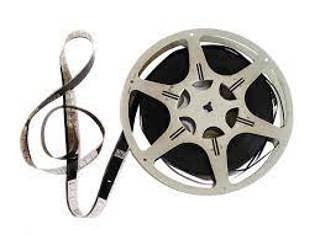
The Music of Film Composers
Film music began as a solution to a problem. Early film projectors were really loud, therefore something was needed to cover up all the noise. In addition, silent movies apparently seemed a bit awkward without any musical accompaniment. Enter, usually, a pianist, who would improvise musical accompaniments to the events on the screen. None other than Dmitri Shostakovich got his first job as a cinema pianist, honing his improvisatory skills, and sometimes receiving cat calls and boos for his fantasy filled musings that tended to stray away from the action on the screen. Music in the silent film era had to help the audience in pointing out important moments to the audience, enhancing the emotional effects of the story, and most importantly, it had to give a certain musical line to every character, giving to them the emotional depth that the audience couldn't get since they weren't going to hear their voice. To do this, early film composers turned to the idea of the Leitmotif, an idea developed by the opera composer Richard Wagner. This idea would take hold even once "talkies" took over the screen, with composers such as Max Steiner, Charlie Chaplin, and others setting the stage for a century of brilliant music, by composers like Bernard Herrmann, John Williams, Dmitri Shostakovich, Rachel Portman, Hans Zimmer, Erich Wolfgang Korngold, Christopher Willis, and dozens and dozens more. Today on the show we'll talk about this development of film music, and also hear some of the greatest and most recognizable film music ever written. We'll also talk about why film music is sometimes looked down upon in the classical music world, and how we might begin to change that perception. Join us!
1 Joulu 202244min
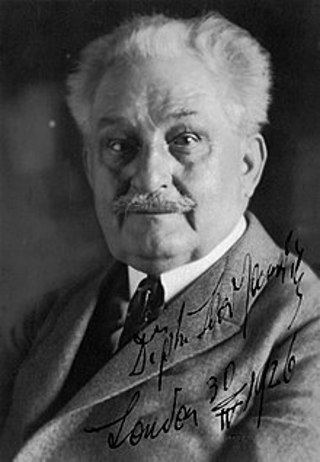
Janacek Sinfonietta
Along with Antonin Dvorak and Bedrich Smetana, Leos Janacek is known as one of the three great Czech composers. He was born in Moravia, part of the Austrian Empire at the time, and became passionately interested in studying the folk music of his Moravian culture. After World War I, when the empire collapsed and Moravia became incorporated into the new country of Czechoslovakia, those nationalistic sentiments only increased, and Janacek was the perfect person to express those feelings through his music, seeing as his interest in the folk music of his homeland had been a lifelong passion for him. Enter the Sinfonietta, written in 1926, commissioned by none other than a Gymnastics festival! A sinfonietta is usually a smaller scale piece than a symphony, shorter, with a lighter orchestration and a lighter touch. But Janacek was always a rebel, and his Sinfonietta is a symphony in all but name, featuring an absolutely massive brass section that lustily performs the nationliaistic fanfares that Janacek gleefully adds to the music. The Sinfonietta is an expression of patriotic love for Janacek's homeland, but it is also a piece that shows off so many of the things that make Janacek such a unique and underrated composer, his love of short fragmented melodies, his shocks and surprises, his innovative use of orchestration, and more. If you're not familiar with Janacek's music, the Sinfonietta is the perfect entry point, so come join us on this Patreon-sponsored episode!
25 Marras 202250min
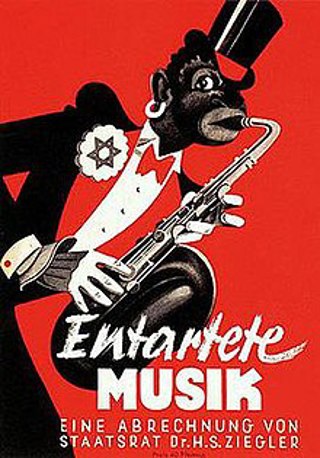
The Degenerates: Music Suppressed By The Nazis
The center of Western Classical Music, ever since the time of Bach, has been modern-day Germany and Austria. You can trace a line from Bach, to Haydn to Mozart to Beethoven to Schubert to Schumann, Brahms, and Wagner, and finally to Mahler. But why does that line stop in 1911, the year of Mahler's death? Part of the answer is the increasing influence of composers from outside the Austro-German canon, something that has enriched Western Classical music to this day. There was also World War I getting in the way. But after the war, one could have expected that this line would continue again. The 1920's in Germany and the rest of Europe were a time of radical experimentation, a flowering of ideas, a sort of wild ecstasy of innovation across all the arts. So why don't we hear of these Austro-German experimenters and innovators anymore? Because of Adolf Hitler, Joseph Goebbels, and their Entartete, or Degenerate music. Hitler's worst crime was by no means his suppression of dozens of German, Austrian, and Eastern European composers, but it is a fact all the same that from the end of World War I until 1933, classical music in Germany and Eastern Europe(especially Czechoslovakia), was flourishing, with composers such as Zemlinsky, Krenek, Korngold, Schreker, Schulhoff, Haas, Krasa, and Ullmann taking up the mantle of the giants of the past and hoisting it upon themselves to carry it forward. The Nazis silenced, exiled, or killed off many of these musicians during the twelve years of 1933-1945, and those voices are forever lost, but the music they wrote before, during the War and the Holocaust, and after it, some of it masterpieces quite on the level of their predecessors, has been preserved. So why then are these composers not better known? I've chosen 12 composers, all of whom were writing music at the highest level. Some of them may be familiar to you, but many probably won't be. And through all of their trials and tribulations, one of the things I want to emphasize throughout these stories, even the bleakest ones, is that so many of them found the will to be able to compose this heart-rending, beautiful, and often optimistic music all as they witnessed unimaginable horrors. It may seem empty when the end for many of these artists was so horrific, but these compositions and the men and women who were behind them are a true testament to the resilience of the human spirit. These artists created a life for their friends, neighbors, and fellow inmates in concentration camps. They wrote music they knew would almost certainly not be heard in their lifetimes, from an urge that could not be destroyed, even by gas chambers. Join us to learn about them this week.
17 Marras 202257min
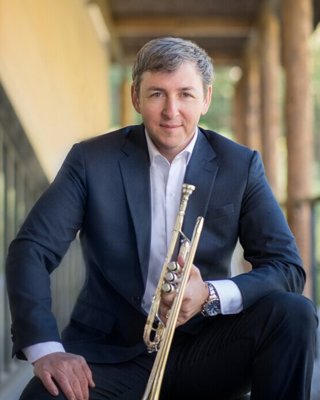
David Krauss, Principal Trumpet of the Metropolitan Opera Orchestra
David Krauss is the Principal Trumpet of the Met Opera orchestra, and in this conversation, we talked about his beginnings on the trumpet, the differences between playing in a symphonic orchestra vs. an opera orchestra, how to manage the vast distances between singers, the conductor, the orchestra, and the brass section, the specific skills an opera orchestra player has to have, and some funny/terrifying stories about on stage moments we both would rather forget! We also talked about David's podcast, Speaking Soundly. This was a really fun conversation and I hope you enjoy it as much as I did!
3 Marras 202245min
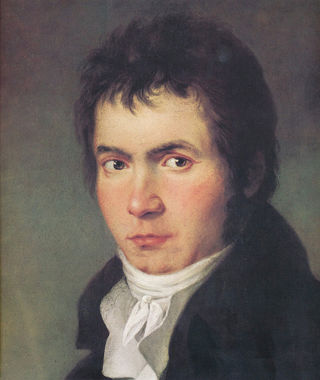
Beethoven Op. 18 String Quartets, Part 2
Note: This episode will be a lot more enjoyable if you listen to Part 1 first! As we turn towards the final three quartets of the set, we'll see a lot of the same characteristics of the first 3; a perfect classical era proportionality, strong influences from Haydn and Mozart, and that perfect blend of vividly drawn but just very slightly restrained characters that marks Beethoven's early period. But we also will see something else. We will see C Minor, Beethoven's favorite key to depict drama and anxiety, we will see music that is almost impossibly charming and Mozartian coming from a composer as irascible as Beethoven, and then we will arrive at Op. 18 No. 6, perhaps the most emotionally complex and forward looking of the 6 Op. 18 quartets. We'll take our same birds eye view of each of these quartets, as we did last week, but I will also do two more deep dives. We'll take apart the first movement of Op. 18 No. 4, and the last movement of Op. 18 No. 6, which is the movement that for many is the highlight of these quartets. Along the way, we'll enjoy all of the quirky details of these three mini masterpieces, and see how Beethoven was starting to break the mold and set out onto his own path, one note at a time. PS: All recordings used on the show for the last two weeks were done by The Cleveland Quartet - recordings of the complete quartets are available at clevelandquartet.com
27 Loka 20221h 6min

Beethoven Op. 18 String Quartets, Part 1
In 1798, Beethoven, all of 28 years old, was about to begin a project that would take him to the last days of his life, a project that would result in some of the most far-reaching, most cosmic, most life-affirming, most dramatic, and simply put, some of the greatest music he, or anyone else, ever wrote. This project that Beethoven was beginning was his first set of string quartets. Beethoven wrote/published 16 string quartets during his life, and they are both a superhuman achievement and yet also a testament to the ability of a single person to create music of vast complexity and the deepest of emotions, all for just 4 musicians. To really understand Beethoven's quartets, and his achievements with them as he progressed through his life, we have to start at the beginning. Beethoven was very rarely in the shadow of anyone during his life, but when it came to the string quartet, Beethoven still felt very much indebted to two of his colleagues, Haydn and Mozart. Haydn had essentially invented the genre of the string quartet, and by 1798 was beginning the massive project of cataloguing and writing out his 68 string quartets. Mozart had died only 7 years earlier, leaving us with some of the most pristine and gorgeous entries in this still relatively new at the time genre of instrumentation. Beethoven's music is often separated in to early, middle, and late periods, and these string quartets are always placed into the early period, which makes sense considering his later works, but also belies the fact that Beethoven had already accomplished quite a bit by the time he turned 30! It's safe to say that these pieces come near the end of this early period, where Beethoven was still working out how to embrace the classical traditions that he admired so much in composers like Mozart and Haydn, while also finding his own path as the creator of brand new traditions, smashing the rule book along the way. So this week, I wanted to take you through an overview of these amazing works. We'll talk about the genre of the string quartet itself, what Haydn and Mozart had essentially codified when Beethoven wrote his Op. 18s, and of course, what Beethoven did with this genre, even at this early stage, which is often absolutely astonishing in its creativity, intensity, and just plain excitement.
20 Loka 20221h 6min






















